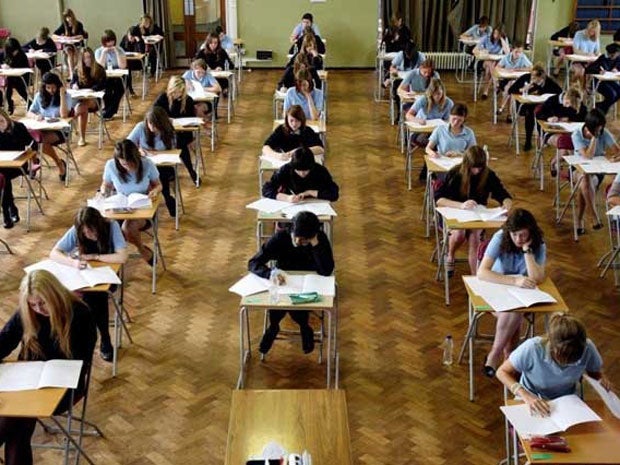How 'voo' and 'terg' caused a 'strom' in the reading tests
Teachers threaten boycott of national exams, saying children were confused by made-up words

More than four out of 10 children failed the Government's first-ever national reading test for five- and six-year-olds. When the reseults were published yesterday they immediately sparked a row with teachers, who claimed the test was undermining the cleverest children through the use of made-up words and undermining the confidence of pupils by failing them at the age of five.
Teachers may now boycott the tests next year if the Government does not first withdraw them.
At the end of the first year of their compulsory schooling, children are tested on 40 words – half of them made up like "voo", "terg" and "strom". Only 58 per cent got 32 out of 40 right – the required standard that children are expected to meet.
Girls did better than boys in the test, with 62 per cent achieving the pass mark as opposed to 54 per cent of boys. Children from disadvantaged homes did worst with just 44 per cent meeting the standard.
However, a survey of teachers by three unions – the National Union of Teachers, the Association of Teachers and Lecturers and National Association of Head Teachers – revealed that the test was often foxing some of the cleverest children who believed the made-up words were a spelling error. As a result, they tried to turn them into real words, for example turning "strom" into "storm" and therefore getting marked down.
The Department for Education said the phonics check had unearthed 235,000 pupils who needed help with their reading. It argued that made-up words had to be used as the only fair and accurate way of checking pupils' decoding skills since pupils could not resort to memory to get the answer right. The Education and Childcare minister Elizabeth Truss said: "The reading check helps to identify those pupils who need extra help in learning to read."
However, Christine Blower, general secretary of the NUT, said: "Children have different learning styles and develop at different ages and stages – a fact the phonics check doesn't recognise. Five is too young to fail. This check is simply upsetting.
"We need to be encouraging reading for pleasure and not putting children off the whole process by reducing it to yet another target."
The unions' survey revealed that 91 per cent of teachers did not believe the phonics check told them anything they did not already know about their children's ability to read.
Subscribe to Independent Premium to bookmark this article
Want to bookmark your favourite articles and stories to read or reference later? Start your Independent Premium subscription today.

Join our commenting forum
Join thought-provoking conversations, follow other Independent readers and see their replies